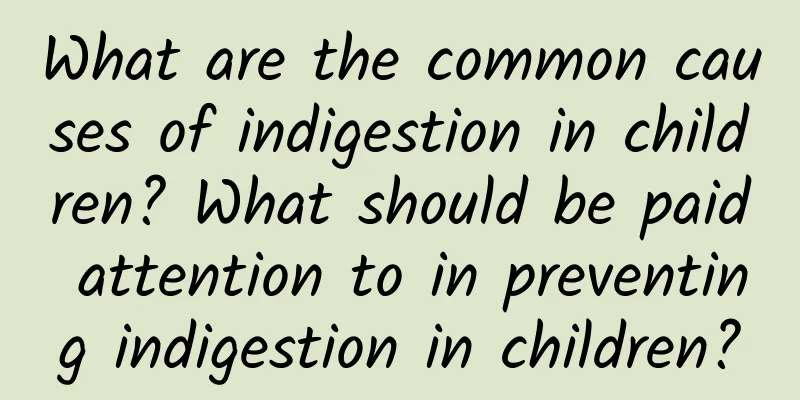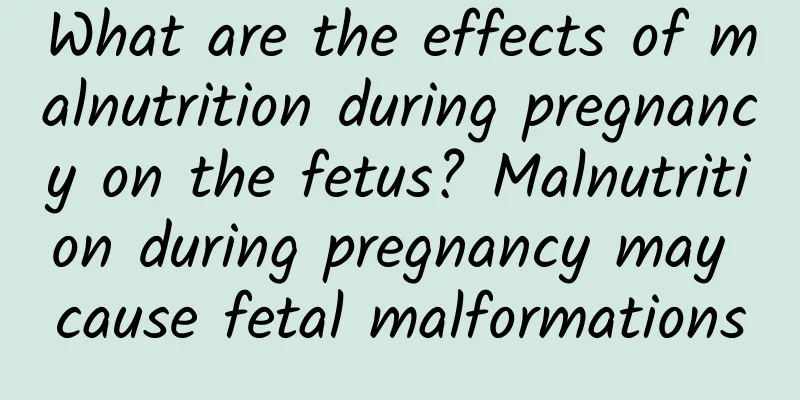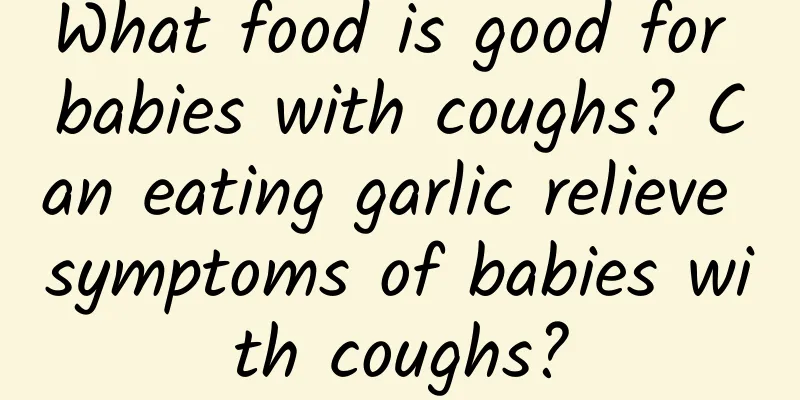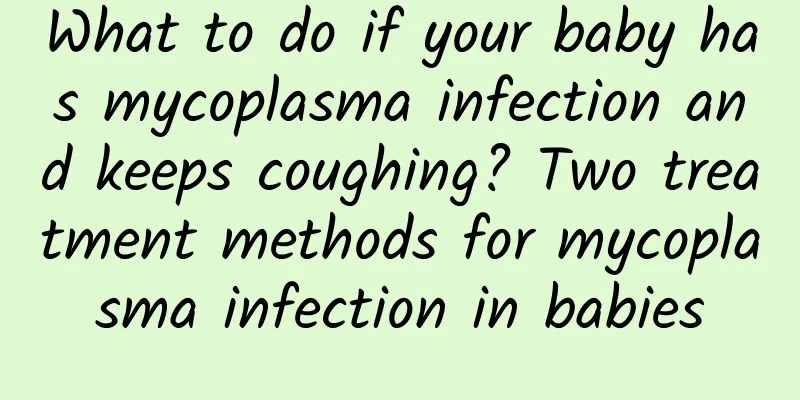What are the common causes of indigestion in children? What should be paid attention to in preventing indigestion in children?

|
Infant indigestion refers to symptoms of digestive dysfunction such as upper abdominal pain, bloating, early satiety, hiccups, anorexia, heartburn, acid reflux, nausea and vomiting. It is the most common clinical syndrome in pediatric gastroenterology. Children's digestive organs are not fully developed, digestive juices are insufficiently secreted, enzyme function is imperfect, gastrointestinal mucosa is tender, and digestive function is weak. If parents cannot feed their children correctly and feed their children, the quality and quantity of their diet will be inappropriate, which will damage gastrointestinal dysfunction. Children will experience indigestion (food damage) such as abdominal distension, vomiting, loose and sour stools, and a large amount of undigested food residues. In addition to improper feeding, gastrointestinal inflammation, abuse of antibiotics, cold weather, low body resistance, and cold stomach can also cause indigestion. Long-term indigestion in children will lead to insufficient nutrient intake, poor digestion and absorption, and affect growth and development. Especially for children under 3 years old, this stage is the period of most vigorous brain development and a critical period for determining intelligence level. If the digestive function cannot be improved in time, it will affect the absorption of nutrients, which will inevitably affect the development of the brain and regret it for life. How to care for children with indigestion? 1. For infants, it often manifests as regurgitation of milk. Older children often vomit, which is generally not serious and the vomit has a sour taste. 2. Children have loss of appetite, abdominal distension, and hyperactive bowel sounds. You can even hear the stomach "gurgling" without a stethoscope. 3. Bad breath. When milk and food stagnate in the upper abdomen, bad breath often occurs first, especially bad breath and sour breath in the morning are manifestations of milk and food stagnation, clinically known as high food stagnation. When this phenomenon occurs, you can reduce or stop eating to promote the recovery of gastrointestinal function. 4. Stool smells bad. When a small amount of food residue is not digested, although it is not diluted, it is a sign of food leakage. At this time, the amount of food should be reduced immediately and adjusted to avoid diarrhea. How to prevent indigestion in children? 1. Feeding quantitative feeding. Let children develop good eating habits from an early age so that their internal organs can adapt better. Older children should be encouraged to develop the habit of eating automatically. 2. Overcome partial food intake and pay attention to the comprehensiveness of nutrition. The combination of meat and vegetables should be appropriate, and overcome the bad habit of eating mainly snacks. Avoid strong irritating foods such as strong tea, coffee, wine and spices, peppers and mustard. 3. Pay attention to maintaining a good appetite for children. Because eating is most beneficial only when there is an appetite. To maintain a good appetite for children, it is important to note that the eating environment should not be too noisy, and they should not eat while watching TV; be careful not to force children to eat or restrict their diet too strictly; do not eat candy before meals; avoid children being too tired or nervous when eating; the color, aroma and taste of the food should be attractive. 4. Pay attention to keeping your abdomen warm, avoid exposing your gastrointestinal tract to cold stimulation, and try to reduce respiratory tract infections. 5. Pay close attention to keeping the digestive tract unobstructed and develop the habit of regular bowel movements. 6. Pay attention to hygiene, cultivate the habit of washing hands before meals, pay attention to clean and fresh food. Eat more easily digestible food, avoid fried and other difficult to digest food, and eat while reading. |
>>: Will indigestion cause the baby to refuse to eat? Methods to prevent indigestion in children
Recommend
How to treat polio
Polio is an acute infectious disease caused by th...
How to treat patent ductus arteriosus reasonably
How to reasonably treat patent ductus arteriosus?...
What are the causes of acute laryngitis in children?
Acute laryngitis in children is more common in wi...
What medicine is good for treating a child's cough caused by measles?
Measles generally refers to the measles virus. Wh...
Is polio hereditary?
Polio is not directly inherited, but genetic fact...
Symptoms of bronchitis in children: cough, sputum, fever, vomiting, diarrhea
Bronchitis in children refers to the infection of...
What causes hernia in children? What are the dangers of hernia in children?
Because the abdominal wall of children is not str...
How long does it take for a child's hernia to recover? Pay attention to these issues
Common hernias in children include umbilical hern...
What are the methods to deal with diarrhea in children? What are the symptoms of diarrhea in children?
Pediatric diarrhea is a group of diseases mainly ...
Symptoms of hand, foot and mouth disease in adults
Adults with hand, foot and mouth disease may expe...
How to treat cough caused by allergic rhinitis in babies
When babies have allergic rhinitis, it can cause ...
Can hand, foot and mouth disease be transmitted to adults? You must know these preventive measures!
Xiao Li is a young mother. Recently, her child Xi...
What should I do if my baby coughs badly when sleeping at night?
When babies cough badly at night, they can be fed...
Medication for herpetic pharyngitis and hand, foot and mouth disease in children
Herpetic pharyngitis and hand, foot and mouth dis...
Will polio recur after recovery?
Polio is a very common pediatric disease. Many pa...









